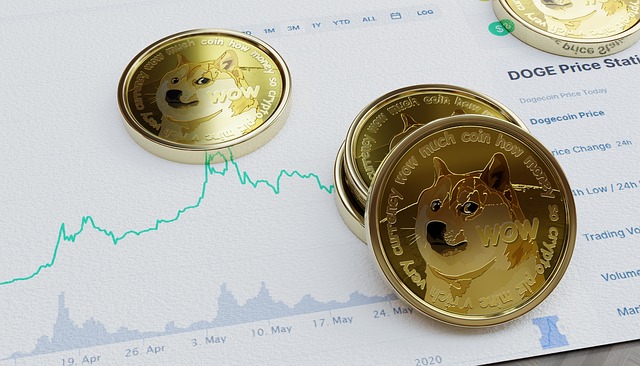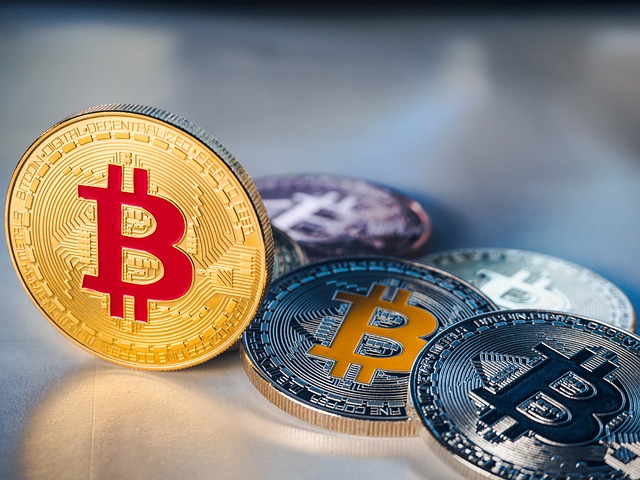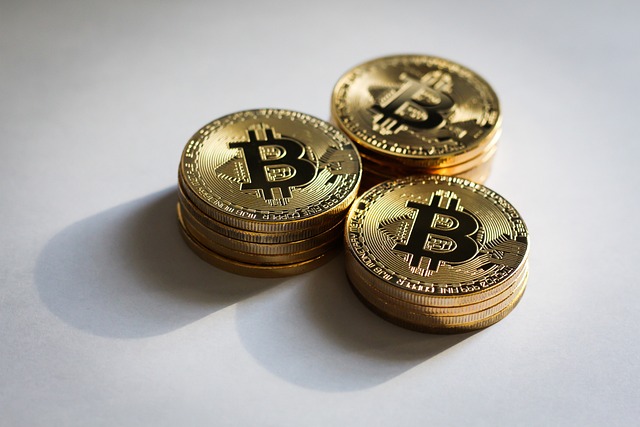Risk and Reward: Understanding DeFi Investment Risks
Risk and Reward: Understanding DeFi Investment Risks

Decentralized Finance (DeFi) Investment: What You Need to Know
Decentralized Finance (DeFi) has emerged as a hot topic in the world of cryptocurrency and investment. Unlike traditional finance, DeFi operates on blockchain technology, offering a decentralized and open financial system accessible to everyone. What you need to know about DeFi investment is that it provides an array of opportunities to earn passive income, diversify portfolios, and gain exposure to innovative projects.
One of the key aspects of DeFi investment is the ability to participate in liquidity pools, also known as decentralized exchanges (DEXs). These platforms allow users to lend, borrow, and trade digital assets without the need for intermediaries. By providing liquidity to these pools, investors can earn fees and potentially generate high returns on their investments. However, it’s essential to conduct thorough research and evaluate the risks associated with each project before diving in, as the DeFi space is still relatively new and volatile.
The Growth of DeFi: Exploring the Potential
Decentralized Finance (DeFi) has taken the financial world by storm, offering a new way to access banking services and investment opportunities.

One of the key factors driving the growth of DeFi is its ability to provide financial services without the need for intermediaries, such as banks or brokers. This decentralized nature ensures that users have full control and ownership of their assets, eliminating the risk of funds being frozen or confiscated by a central authority. Additionally, the open-source nature of DeFi allows for anyone to participate in the ecosystem, democratizing access to financial services and investment opportunities. As a result, DeFi has the potential to revolutionize the way we transact, invest, and access financial services, making it an exciting space to explore for investors and enthusiasts alike.
Navigating the DeFi Landscape: A Beginner’s Guide
The world of decentralized finance (DeFi) can initially seem overwhelming to beginners. With its complex terminology and technical jargon, navigating the DeFi landscape may feel like entering uncharted territory. However, fear not! This beginner’s guide aims to simplify the process and equip you with the essential knowledge needed to get started.
First and foremost, it’s crucial to understand the core concept of DeFi. Unlike traditional finance, DeFi operates on decentralized blockchain networks, eliminating the need for intermediaries like banks or brokers. This allows individuals to participate in financial transactions directly, using digital assets known as cryptocurrencies. DeFi offers a wide range of opportunities, from lending and borrowing to yield farming and decentralized exchanges. As a beginner, it’s essential to start with a solid understanding of the fundamentals before exploring the plethora of DeFi investment options available.
Understanding DeFi Investment Opportunities: Where to Start
When it comes to getting started with DeFi investments, it’s important to do your research and educate yourself on the various opportunities available. The first step is to understand the basic concept of DeFi and how it differs from traditional finance. DeFi, short for Decentralized Finance, is an emerging field that leverages blockchain technology to provide financial services without the need for intermediaries like banks. This means that individuals can transact, borrow, lend, and invest directly with each other, bypassing the traditional financial system.
Once you have a grasp of the fundamentals, it’s time to explore the different avenues for investing in DeFi. One popular option is to invest in decentralized lending platforms, which allow you to earn interest on your cryptocurrency holdings by lending them out to borrowers. Another possibility is to invest in decentralized exchanges, where you can trade cryptocurrencies without the need for a centralized authority. Additionally, you can consider investing in decentralized stablecoins, which are cryptocurrencies that aim to maintain a stable value by pegging themselves to a real-world asset or basket of assets. Each investment avenue has its own set of risks and rewards, so it’s crucial to understand each one and determine which aligns best with your investment goals and risk tolerance.
The Mechanics of DeFi Investments: How They Work
DeFi investments operate on decentralized platforms, utilizing blockchain technology to provide a range of financial services. Unlike traditional finance, which relies on centralized intermediaries such as banks or exchanges, DeFi cuts out the middleman, allowing users to engage directly with smart contracts. These contracts are self-executing and self-enforcing, removing the need for trust in a third party. In this way, DeFi democratizes the financial sector, giving individuals greater control and accessibility to financial services.
To participate in DeFi investments, users typically need to connect their digital wallets to decentralized applications (dApps) via web browsers or mobile apps. Once connected, investors can access a wide array of DeFi protocols, including lending, borrowing, trading, and yield farming. Each protocol operates based on specific rules and algorithms, and its performance can be influenced by factors such as user demand, liquidity, and market conditions. Users can choose which protocol best suits their investment goals and risk tolerance, and deploy their assets accordingly. The mechanics of DeFi investments provide flexibility and transparency, empowering individuals to manage their finances in a more efficient and autonomous manner.
Analyzing DeFi Investment Risks: What to Look Out For
When it comes to decentralized finance (DeFi) investments, it’s crucial to carefully analyze the potential risks involved. While the DeFi landscape offers exciting opportunities for investors, it’s essential to be aware of the potential pitfalls that can arise. One key risk to consider is the volatility of digital assets. Unlike traditional investments, cryptocurrencies can experience extreme price fluctuations, which can significantly impact your investment portfolio.

Another risk to be mindful of in DeFi investments is smart contract vulnerabilities. DeFi platforms often rely on smart contracts to facilitate transactions and execute functions. Despite their efficiency, smart contracts can contain bugs or be vulnerable to malicious attacks. These vulnerabilities can have devastating consequences, leading to financial losses or even the loss of your entire investment. It’s crucial to thoroughly assess the security measures and audit reports of the DeFi platforms you consider investing in to mitigate this risk. Additionally, diversification is key when it comes to DeFi investments. By spreading your investments across different DeFi projects and platforms, you can reduce the impact of potential risks and take advantage of different opportunities in the market.
Common Pitfalls in DeFi Investments: Lessons Learned
DeFi investments have gained significant popularity in recent years, attracting investors with promises of high returns and decentralized financial opportunities. However, it is crucial to navigate this landscape with caution and be aware of the common pitfalls that can occur. One common mistake that investors make is failing to conduct thorough research and due diligence before investing in a DeFi project. It is essential to understand the fundamentals of the project, such as its underlying technology, team credentials, and overall market potential. Rushing into investments without a solid understanding of the project can lead to significant financial losses and regrets.
Another common pitfall in DeFi investments is overlooking the potential risks and volatility associated with this emerging market. While the decentralized nature of DeFi provides exciting opportunities, it also exposes investors to various risks, including smart contract vulnerabilities, regulatory uncertainties, and market manipulation. It is crucial for investors to assess these risks and implement risk management strategies to protect their investments. Diversifying the investment portfolio, setting realistic expectations, and staying updated with industry news and regulations can help mitigate potential pitfalls and avoid unnecessary losses in DeFi investments.
• Failing to conduct thorough research and due diligence before investing in a DeFi project can lead to significant financial losses.
• Understanding the fundamentals of the project, such as its underlying technology, team credentials, and overall market potential, is essential.
• Overlooking the potential risks and volatility associated with the emerging DeFi market can be a common pitfall for investors.
• Smart contract vulnerabilities, regulatory uncertainties, and market manipulation are some of the risks that investors should assess.
• Implementing risk management strategies like diversifying investment portfolios and staying updated with industry news and regulations can help mitigate pitfalls in DeFi investments.
Mitigating Risks in DeFi Investments: Best Practices
When it comes to mitigating risks in DeFi investments, following best practices is crucial for safeguarding your funds. One of the most important steps is conducting thorough research before investing. Take the time to understand the project, its team, and its underlying technology. Look for projects that have a strong track record, transparent governance, and a clear roadmap. Additionally, it’s important to diversify your investments across different projects to minimize the impact of any potential failures or market fluctuations. By spreading your investments, you can reduce the risk associated with a single project’s success or failure.
Another important best practice is to ensure that you are using secure and reputable platforms for your DeFi investments. Due to the decentralized nature of DeFi, there are various platforms available, but not all of them are trustworthy. Before committing your funds, thoroughly research and assess the platform’s security measures, track record, and user reviews. Additionally, make sure to use hardware wallets or cold storage solutions to securely store your assets, rather than keeping them solely on platforms that may be vulnerable to hacking attempts. By exercising caution and using reliable platforms, you can significantly reduce the risk of falling victim to scams or losing your funds due to security breaches.
Strategies for Maximizing Rewards in DeFi Investments
In the ever-evolving world of decentralized finance (DeFi) investments, maximizing rewards can be a challenge. However, with careful planning and strategic decision-making, investors can increase their chances of reaping substantial returns. One effective strategy is diversification. Instead of putting all your eggs in one basket, consider spreading your investments across different DeFi projects. This way, even if one project experiences a setback, you won’t lose everything. Diversification not only helps mitigate risks but also allows you to tap into various opportunities within the DeFi landscape.
Another strategy that can maximize rewards in DeFi investments is staying informed and keeping up with the latest developments. The DeFi space is dynamic, with new projects, protocols, and trends emerging regularly. By staying in the loop, you can uncover potential investment opportunities before they gain mainstream attention. This could give you a competitive advantage and potentially lead to higher rewards. Additionally, being knowledgeable about the risks and rewards associated with different DeFi investment options can help you make more informed decisions and optimize your investment strategy. Dismissing the importance of research and staying informed could lead to missed opportunities or unexpected losses, so it is vital to prioritize ongoing learning and staying up to date.
The Future of DeFi Investments: Trends and Predictions
As the popularity of decentralized finance (DeFi) continues to grow, experts predict a number of trends and predictions for the future of DeFi investments. One possible trend is the widespread adoption of decentralized exchanges (DEXs).

Another trend that experts anticipate is the integration of DeFi into mainstream financial systems. Currently, DeFi operates independently from traditional banking and finance, but as the industry matures, it is likely to intersect with traditional financial systems. This convergence has the potential to create new opportunities for investors, as well as challenges for regulators and policymakers. With the development of interoperability protocols and the growing interest from institutional investors, the future of DeFi investments looks promising, but it also raises questions about how regulations will adapt to this innovative space.
What is DeFi investment?
DeFi investment refers to investing in decentralized finance projects and platforms that operate on blockchain technology, allowing users to access financial services like lending, borrowing, and trading without the need for intermediaries like banks.
Why is DeFi investment gaining popularity?
DeFi investment is gaining popularity because it offers several advantages, such as lower transaction costs, improved accessibility, transparency, and the potential for higher returns compared to traditional financial systems.
How can I get started with DeFi investment?
To get started with DeFi investment, you need to familiarize yourself with the basics of decentralized finance, choose a reliable DeFi platform or project, create a wallet to store your digital assets, and conduct thorough research before investing.
What are the risks involved in DeFi investments?
DeFi investments come with various risks, including smart contract vulnerabilities, hacking attacks, regulatory uncertainties, market volatility, and potential loss of funds due to human error. It is crucial to assess and understand these risks before investing.
Are there any common mistakes to avoid in DeFi investments?
Yes, there are common pitfalls in DeFi investments that you should be aware of. These include investing in unaudited or poorly designed projects, ignoring security measures, falling for scams, and overexposing yourself to a single project or asset.
How can I mitigate risks in DeFi investments?
To mitigate risks in DeFi investments, it is essential to conduct thorough research, diversify your investment portfolio, use reputable and audited projects, implement strong security measures like hardware wallets, and stay updated with the latest news and developments in the industry.
What are some strategies to maximize rewards in DeFi investments?
Strategies for maximizing rewards in DeFi investments include yield farming, where you provide liquidity to earn rewards, staking, participating in decentralized exchanges, and exploring innovative DeFi projects with high growth potential.
What are the future trends and predictions for DeFi investments?
The future of DeFi investments is expected to see increased adoption and integration with traditional financial systems, improved scalability and usability, regulatory clarity, the emergence of new DeFi platforms and services, and the potential for mainstream acceptance as DeFi matures.
Todays Featured Product:
Buy, exchange and grow your crypto securely with a Ledger hardware wallet, combined with the Ledger Live app. It’s never been easier to keep your crypto safe and accessible. Buy direct from Ledger.com and get todays Special Offers Here.




